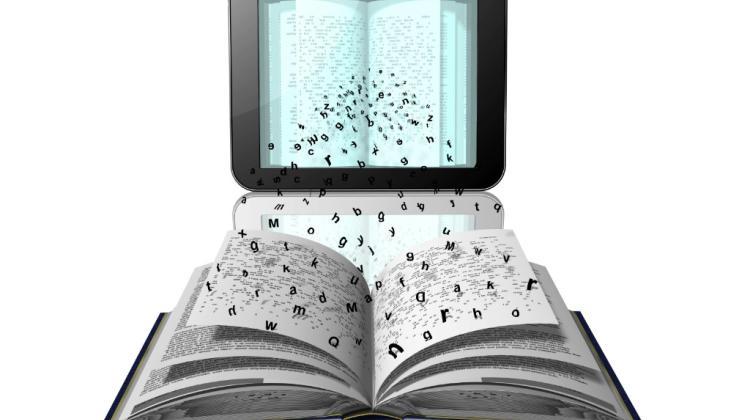Free science in libraries and online
 Photo: Fotolia
Photo: Fotolia
Open repositories, digital libraries, free scientific journals - scientists have many opportunities to legally use the latest scientific publications online for free. Researchers and publishers who want to give open access to their content can use Open Science Platform of the ICM UW.
Of the approx. 2 thousand bulleted scientific journals published in Poland, approx. 1.2 thousand are journals, which provide open access to its content - online and free of charge. Lidia Stępińska-Ustasiak from the Open Science Platform, however, admitted in an interview with PAP that the content of these journals are not collected in one place - to access it, users often have to go directly to a specific journal’s website. This makes it difficult to search these journals for articles on a specific topic. Getting to the open resources is further complicated by the fact that there is no complete database of them. For example, the international open access journals database - Directory of Open Access Journals only has information about more than 200 journals from Poland, thus missing information about a thousand free Polish publications.
To facilitate the work of researchers who want to quickly access research results, the Interdisciplinary Centre for Mathematical and Computational Modelling of the University of Warsaw (ICM UW) runs the service, in which a large part of the contents of Polish open scientific journals is collected. The Science Library already has the contents from over 410 Polish Open Access journals. The fact that the texts of the publication are in one place, makes it much easier to search these resources.
Lidia Stępińska-Ustasiak noted, however, that not all publishers agree to make the contents of free journals available in the Science Library. PAP interviewee noted that one of the concerns of publishers is that the number of visits to the websites of these journals would drop. "But perhaps publishers should care less about the number of visits to their websites, and more about making it easier for scientists around the world to use the research published in the journals?" - wonders Stępińska-Ustasiak. She explained that the Science Library provides visitor statistics for individual journals and publications. It turns out that journals are of interest not only to Poles, but researchers from various parts of the world, who would be less likely to find the publications, if they were available only on the publisher’s website. "We encourage publishers to come to us" - calls Stępińska-Ustasiak.
However, access to Polish scientific journals is not everything. Scientists also want to be able to share their publications in foreign journals and publish their conference materials, doctorates and books in open access. The place where researchers can share their work is digital repository. In Poland there are 23 repositories, founded by various scientific institutions, where, scientists from various centres share their content. For researchers from centres that do not have their own repositories, Repository CeON (Centre of Open Science) has been created. At the moment it has over 5 thousand texts. In addition, to make it easier to search the resources of various Polish repositories, CeON has the CeON Aggregator that allows users to reach the texts collected in 16 Polish repositories using one search engine.
The repository can be used to share the materials, sharing which does not break anyone\'s copyright. Therefore Stępińska-Ustasiak encourages the scientists who publish their findings to verify the publishers’ policy regarding open access (information on this policy should be on publisher’s website). This way they will know if they can transfer their texts to the repository and on what terms. She admitted that journals around the world more often publish articles in an open model or allow to place them in the repositories. Publication of open access article in a foreign journal, however, is often associated with charges. Sometimes the charges for the possibility of immediate release are covered by the state, for example in Springer Open Choice program, the Ministry of Science and Higher Education pays for the possibility of an immediate access opening to articles published by Polish researchers in selected Springer journals.
The Open Science platform also offers researchers the service Open Book. For now, it contains 334 books from various fields. The service is completely free of charge and contains new publications. Stępińska-Ustasiak explained that the platform contacts selected authors or their heirs and negotiates with publishers the opportunity to provide access to the book in its database. Publishers often agree to it, because they do not lose any profits - for example it they do not plan to reissue a book published a few years ago. ICM UW encourages all authors of scientific books to contact them, and points out that it is an opportunity to reach a wider group of readers. "Our service has items that were downloaded over 10 thousand times" - added Lidia Stępińska-Ustasiak.
PAP - Science and Scholarship in Poland, Ludwika Tomala
lt/ agt/ mrt/
tr. RL
Przed dodaniem komentarza prosimy o zapoznanie z Regulaminem forum serwisu Nauka w Polsce.















